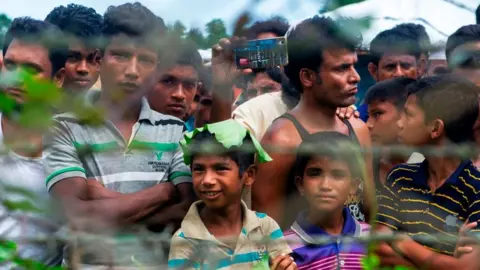New Delhi: In a shocking development, the United Nations and Rohingya families have accused Indian authorities of forcibly deporting at least 40 Rohingya refugees, including women, children, and elderly, by pushing them off a naval vessel into the sea near the Myanmar border, reported the AP News.
According to the Office of the U.N. High Commissioner for Human Rights, the incident occurred last week after Indian authorities detained the group in New Delhi. The refugees were allegedly taken by air and then handed life jackets before being ordered into the waters by the Indian navy near Myanmar’s maritime boundary. Though most managed to swim ashore, their current whereabouts remain unknown.
The U.N. has condemned the act as “unconscionable and unacceptable.” Tom Andrews, U.N. Special Rapporteur on Myanmar, called the incident “a blatant disregard for the lives and safety” of vulnerable refugees and a violation of the international law principle of non-refoulement, which forbids returning individuals to places where their lives are at risk.
Five Rohingya refugees confirmed to the Associated Press that their detained family members were part of the group, including 15 Christians. Lawyer Dilawar Hussain has filed a petition in India’s Supreme Court demanding the Indian government bring them back.
One refugee, who spoke under the condition of anonymity, said he received a desperate call from his brother, who had reached an island in Myanmar with the help of a fisherman’s phone. He recalled hearing how Indian authorities removed their blindfolds, gave them life jackets, and told them to swim.
“My parents were taken from me and thrown into the waters,” he said emotionally. “I just want my parents back.”
The Indian navy and Ministry of External Affairs have refused to comment.
India does not have a dedicated refugee policy and is not a signatory to the 1951 Refugee Convention. Though about 22,500 of an estimated 40,000 Rohingyas in India are registered with UNHCR, many live in makeshift camps and face harassment. Rights groups say they are often targeted by Hindu nationalist groups, detained, or forcibly deported under the pretext of lacking legal status.
Last year, India’s implementation of a controversial citizenship law drew criticism for allegedly discriminating against Muslim migrants, including Rohingyas.
The UN has now appointed a special expert to investigate what it describes as a serious breach of human rights obligations.




